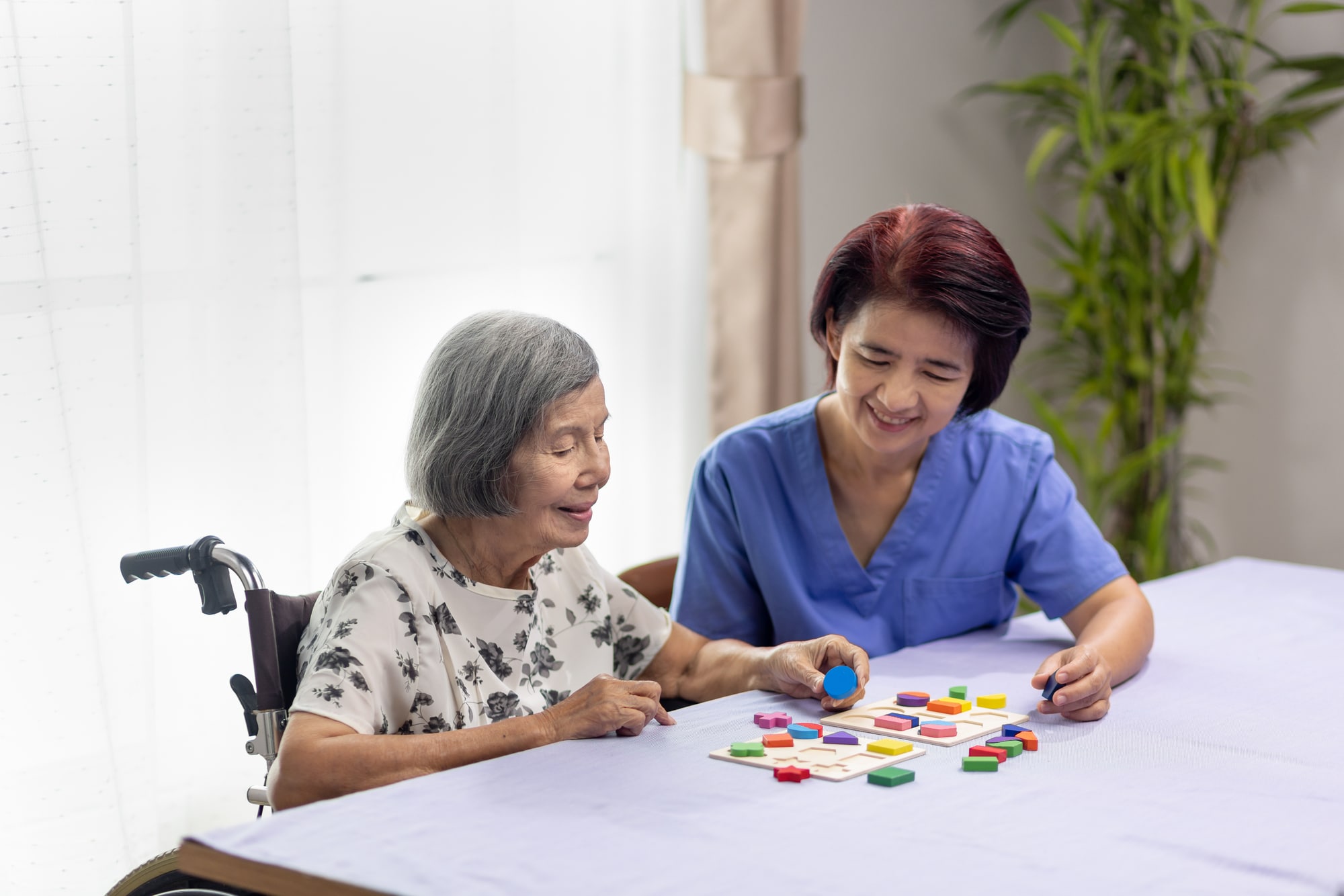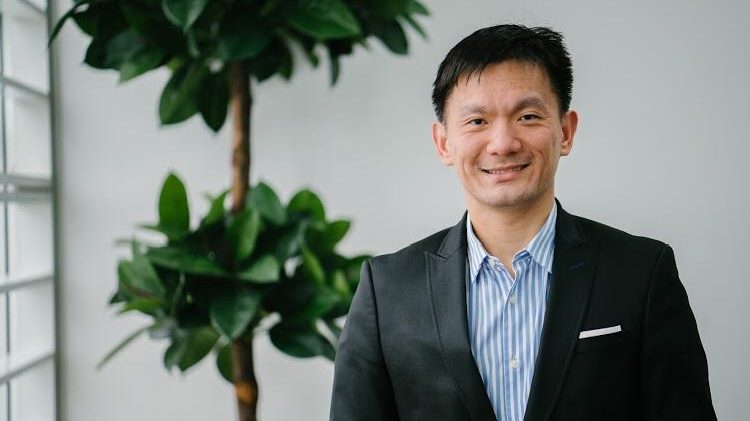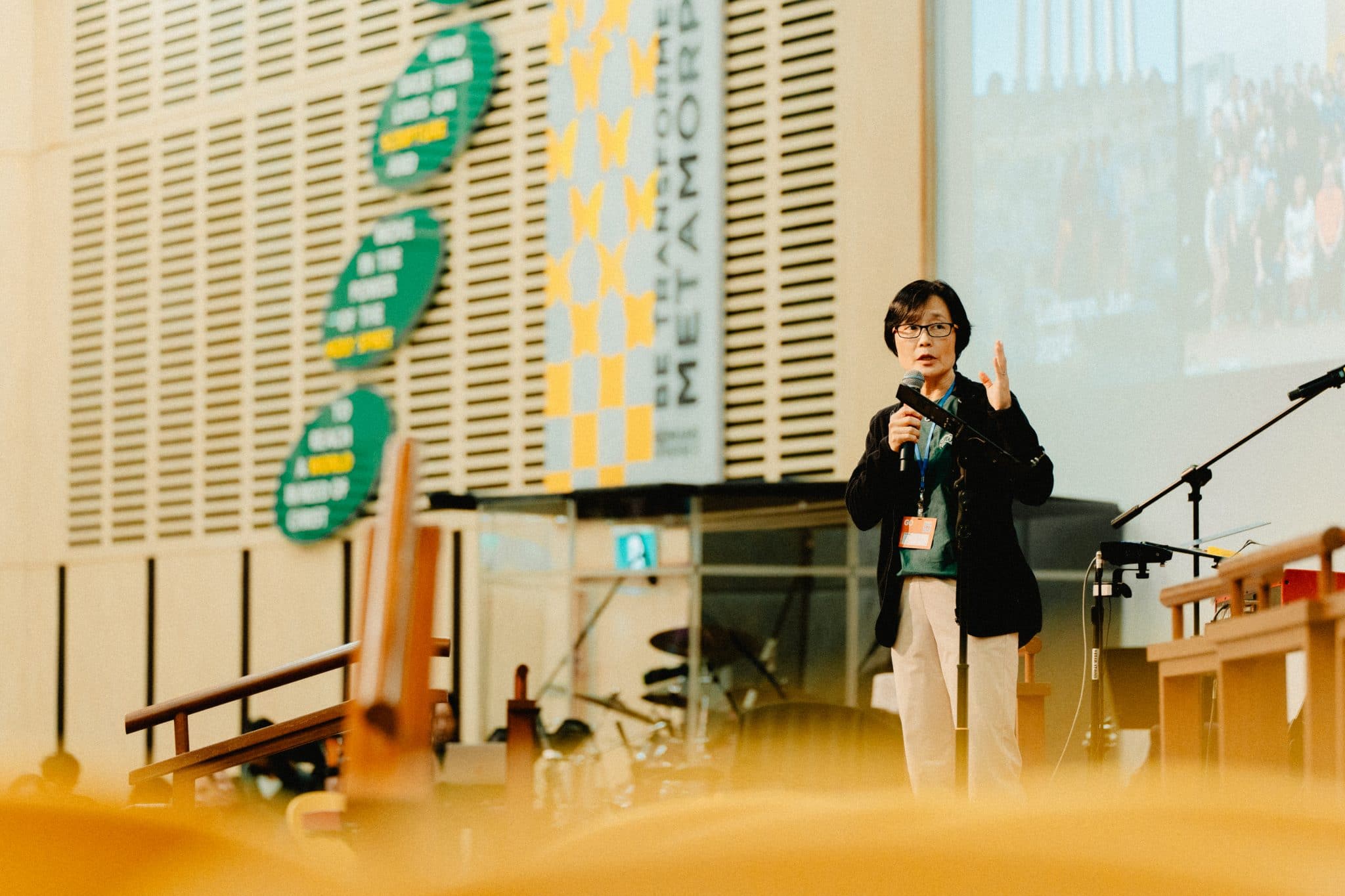“This is what I’ve set you aside to do, so go do it”: How the founder of Habibi International started serving genocide survivors
by Tan Huey Ying // March 3, 2021, 5:21 pm
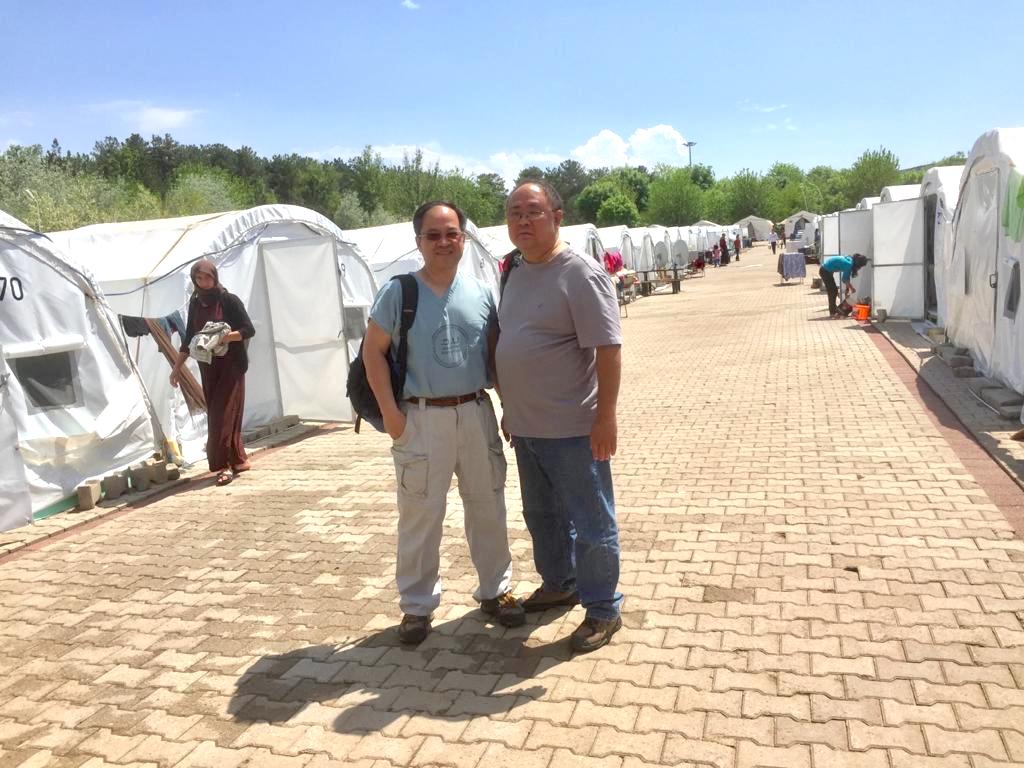
“Suffering, for most people, is just something they read. But when you sit down with a refugee and understand their story, its life-transforming,” says Willy Tan, founder of Habibi International. Willy and Dr David Yue on one of their earliest trips to the Yazidi refugee camps. Photo courtesy of Willy Tan.
“Go re-read that email.”
In the middle of his mid-afternoon siesta at his comfortable home in sunny California, ex-banker Willy Tan, 56, felt an inexplicable prompting that nudged him awake.
The email in question, was a chain letter containing the usual “urgent prayer request” and the call to forward it to anyone you knew. It had come from church leaders based somewhere in Turkey, with a short message:
“Greetings to the Christian Church around the world. Please send doctors and healthcare professionals. Come and help the refugees here.”
The sign-off listed several medical specialties that were needed.
A shocking email
Such emails to him were not an unusual occurrence, the ex-Merrill Lynch banker told Salt&Light. Tan, who graduated from both Biola University and Fuller Seminary in the United States, actively kept himself informed of global events and the needs in missions.
“Greetings to the Christian Church. Please send doctors and healthcare professionals. Come and help.”
But he gets “too many” such emails to pay attention to any one in particular, and usually gives it a brief look before sending it off to his Trash folder.
“That day – for whatever reason – I did not delete the email and I went to take a nap,” he said.
Reopening the message, Tan felt yet another prompting: “Talk to your buddy, David.”
Specifically, Dr David Yue, a fellow church deacon and his counterpart in past short-term mission trips.
Dr David Yue is a medical practitioner specialising in paediatrics and internal medicine. With a small group of mission-minded church-mates in California, the duo engages in regular medical relief work in neighbouring Mexico amongst migrants and the rural poor whilst holding down day jobs in California.
When Tan and Dr Yue looked into the details of the email, they were shocked.
Dire need
Just six months earlier in late 2014, extremist terrorist group, the Islamic State (IS or ISIS), had ravaged the Middle East. Amongst other atrocities, they had made the Yazidis, a Kurdish religious community long persecuted for their beliefs and ethnicity, the target of a campaign which the United Nations has since recognised as genocide.
Ten days after reading the email, the two left to spend two weeks providing medical aid in a Yazidi refugee camp.
By known estimates, over 10,000 Yazidi men were killed and more than 7,000 Yazidi women captured as sex slaves in just three weeks. Tens of thousands of other Yazidis sought refuge in the Sinjar mountains of northern Iraq, while another 30,000 fled to refugee camps for displaced people in neighbouring Turkey.
The country already struggles with the flood of people seeking refuge, including over 2.7 million displaced Syrians alone.
Tan and Dr Yue decided: The situation in the camps was dire, they needed to assist however they could.
So, in April 2015, just 10 days after reading the email and almost six months after the genocide, the two left California to spend two weeks providing medical aid in a Yazidi refugee camp.
Doctor and bouncer
Tan is a solidly-built man with a commanding presence offset by a cheerful disposition and a laugh that rings loud and clear.
But none of that light-heartedness was present as he described the suffering he witnessed in the camp.
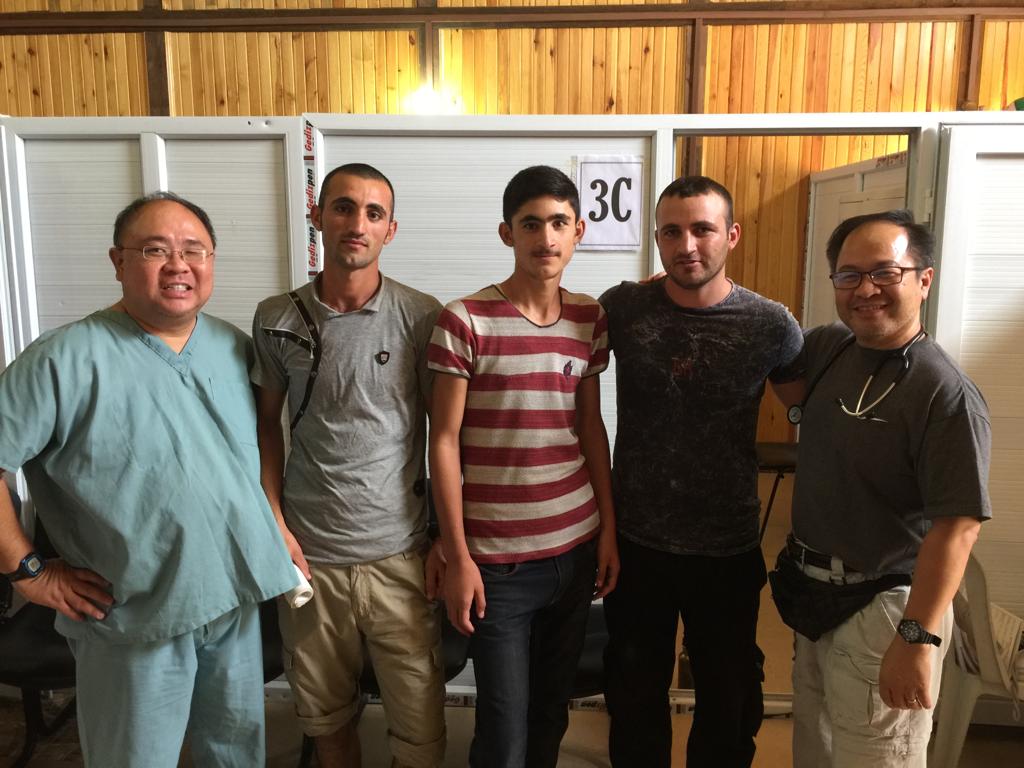
Willy (far left) and David (far right) with their Yazidi interpreters in the camp. In 2020 the UNHCR estimated over 11.7 million Internally Displaced Persons (IDPs) and more than 2.7 million refugees in the Middle East.
Their extensive experience in short-term relief efforts was just barely adequate. “David was the doctor, I was the bouncer,” said Tan, only half in jest, as he recounted how hundreds of refugees were pounding on the door, seeking medical attention.
“We went into the refugee camp like a fish out of water. If we had no experience, it would have been nearly impossible.”
Before they left, the Yazidi leaders pleaded with them to bring more help.
It would be the first of many trips to come.
A stroke at 33
In 2014, even as the Yazidi genocide was unfolding, Tan was in a crisis of his own half a world away.
For 15 years, he had been living with his left eye squeezed shut in a perpetual squint – the consequence of a stroke he had suffered at only 33.
One morning in 2014, Tan woke up to find that the vision in his right, and only functioning eye, was blurry.
“I’d been living with one eye since 1999, until this eye went out also,” Tan pointed to his right eye.
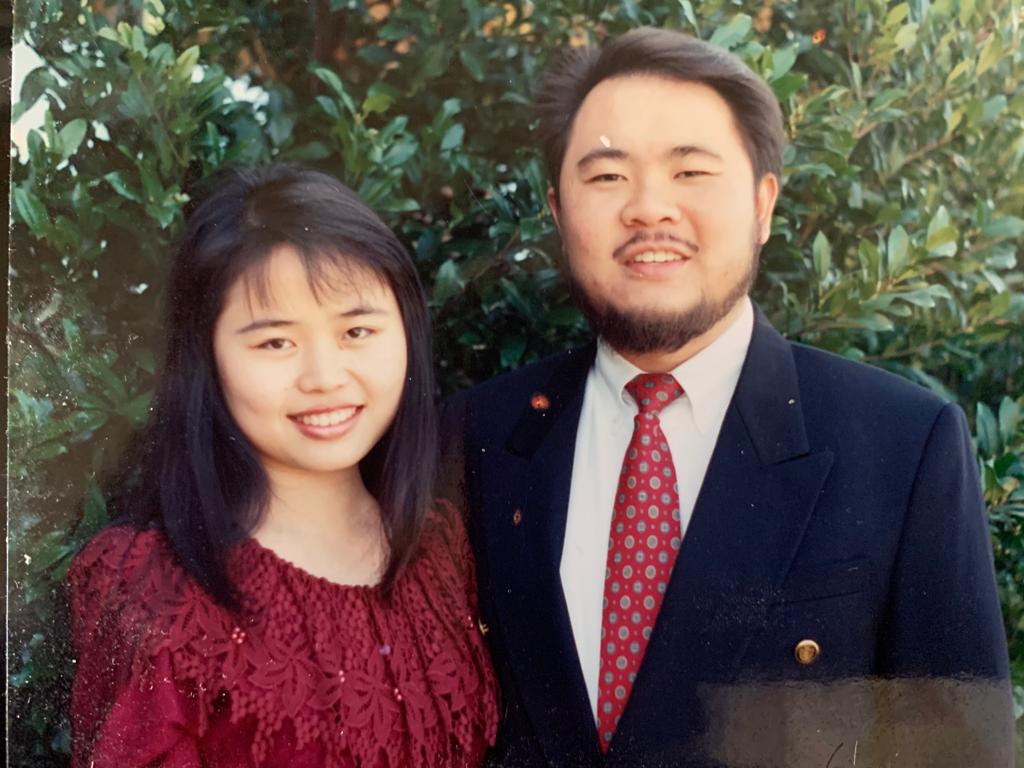
Willy and his wife, Christy, during their younger days, before he had a stroke at 33.
After his stroke, family and friends were concerned, but Tan would smile and tell them: “Don’t worry, God will take care of me. He won’t let anything happen to my good eye.”
Unfazed on the outside, Tan was inwardly shaken. The thought of losing a part of his body had never occurred to him – let alone this happening in the prime of his life. “I was really scared,” he admitted.
Use me, God
As Tan’s vision continued to deteriorate, the fear intensified.
“I prayed. Every single day. In almost every waking moment,” said Tan. “Nothing long nor sophisticated. Just this, ‘God, please use me for the rest of my life.’”
“It was the first time I experienced such fear.”
Eventually, Tan got the results from his visit to the optometrist and learnt about the severity of his condition. He had macular degeneration, a chronic and irreversible medical condition that results in a loss of vision.
The good news: Treatment was available to stop the progress of the disease.
The bad news was how the medicine was administered: An injection, directly into the eyeball, every six weeks for the rest of his life.
A self-described “gutsy” and “bold” character, Tan always considered himself fearless. But he could not stomach the thought of a needle in his eyeball.
“It was the first time I experienced such fear,” he said, as he sat and waited for the doctor to prepare the medicine. “My stomach was churning and my body was shaking.”
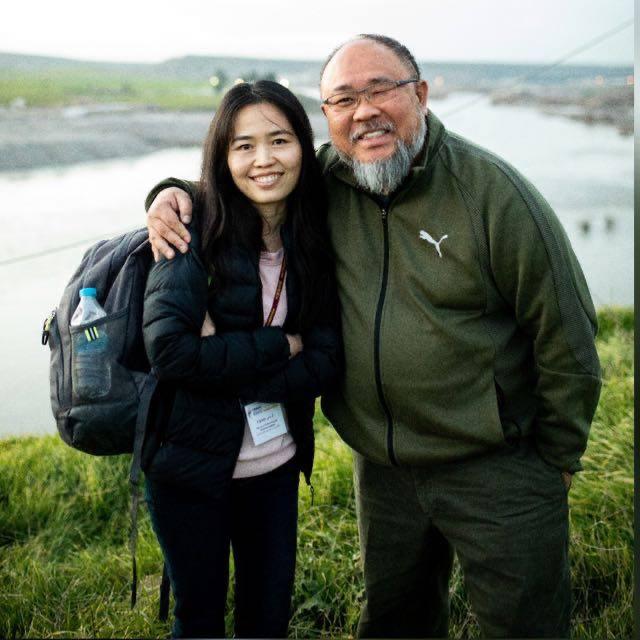
Willy and his wife, Christy, whom he met through a mutual friend in Taiwan. Christy is a nurse who serves alongside Willy in Habibi International.
The doctor was about to inject the drug into his eye when Tan said he felt the presence of the Holy Spirit, who whispered to him: “Son, you will be okay.”
A prophetic word
Little did he know, that answer was a prophetic word, soon to be fulfilled by his ministry to the Yazidi people.
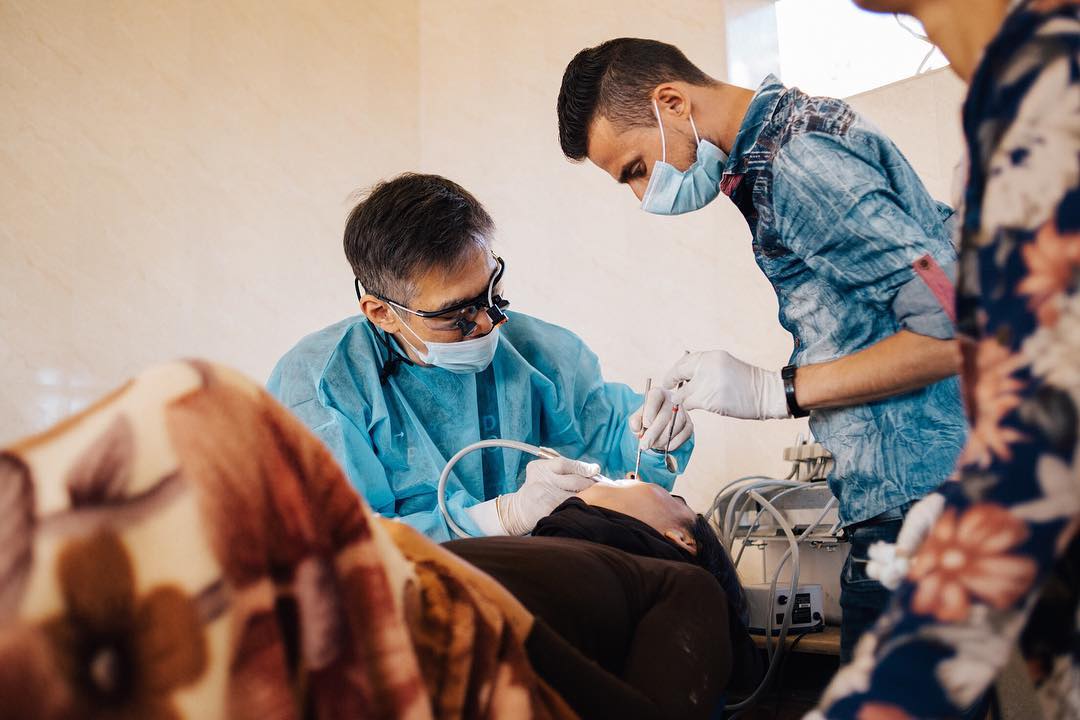
Dental care is one of the hardest services to come by for refugees and Internally Displaced Persons (IDP), with hundreds of people lining up every day to be seen. Dr Jerry Tzou (pictured) is the Dental Director at Habibi International. Photo via Habibi International on Facebook.
“The year 2015 began a whole new chapter of my life,” said Tan. Having left Singapore for the United States over 30 years ago, Tan speaks with a slight American accent – though not much else has changed. “I am like any ordinary Singaporean. I love the enjoyment of good food, nice things and status in life,” he said, his face crinkling into a smile.
“This is what you were made for, what I’ve set you aside to do, so go do it.”
By any measure, life in California was good: Tan was a successful banker with a wife and two young children and served as a deacon in his church. There were also short and frequent mission trips with Dr Yue.
But after the two-week trip, Dr Yue and Tan returned to the United States, processing what they had seen and heard. “Suffering, for most people, is just something they read. But when you sit down with a refugee and spend time interacting and understanding their story, its life-transforming,” said Tan.
Then, one Sunday as Tan was worshipping in his home church, the Lord spoke to him again: “I want to you to bring teams into the field – many teams.”
“I was crying non-stop. I asked Him, ‘God, are You serious about this?’”
The reply: “This is what you were made for, what I’ve set you aside to do, so go do it.”
Refugees in God’s fold
Tan started putting the word out amongst family and friends for a second mission. “Everyone chipped in – close friends, church mates. Those who were wealthier forked out more,” Tan recalled.
Three months later, a 15-man team left Los Angeles Airport with doctors, dentists and nurses. Many of the group were experienced short-term mission trippers, some with over 25 years of experience under their belts.
“We fed thousands and ministered to many. God prepared the group of us for such a time as this. When the call came, we had all this training and we were ready to respond,” said Tan.
“Sometimes we neglect the training, we don’t pay attention to the present training, we think it is a waste of time. But nothing is a waste of time.”
“I cannot think of anyone else harder to reach than those living – and vanishing – in the refugee camps.”
In 2017, Tan left his lucrative job in banking and co-founded non-profit Habibi International together with Dr Yue, working with the local government to provide humanitarian relief and development, primarily serving the Yazidi people in Iraq.
“The Lord has given us grace upon grace, from the local government, the refugees and even from around the world.
“All our lives are customised. We need to hear lessons a certain way to hear God. For some people, their lives are more stable and they can still grow. Not everybody has to be brought to the bottom of their life for God to use them. But for me, He did. I wouldn’t exchange that for anything else.
“I cannot think of anyone else harder to reach than those living – and vanishing – in the refugee camps in countries like Turkey, Lebanon, Jordan and Iraq.
“The Yazidis are third, fourth-class citizens in their own country. This is part of why we are so focused on serving and helping them.
“But the Lord has showed us that He loves the Yazidis and He wants them in His fold.”
RELATED STORIES:
Break my heart, Lord, for what breaks yours: Refugees, missions and you
Note: Due to the global spread of Covid-19, Habibi International cancelled their 2020 volunteer trips. Check here for updates on the constantly evolving situation. To find out more about Habibi and their volunteer opportunities, please email [email protected].
We are an independent, non-profit organisation that relies on the generosity of our readers, such as yourself, to continue serving the kingdom. Every dollar donated goes directly back into our editorial coverage.
Would you consider partnering with us in our kingdom work by supporting us financially, either as a one-off donation, or a recurring pledge?
Support Salt&Light